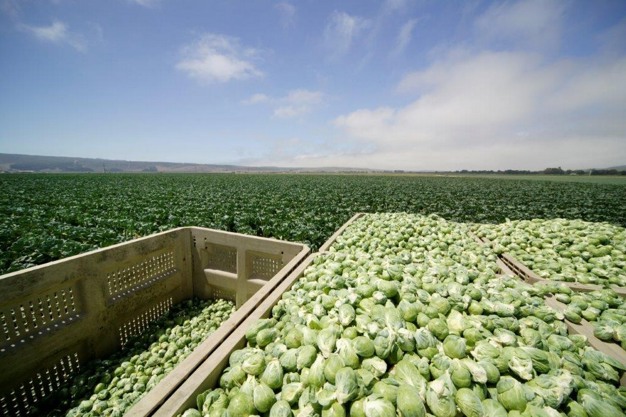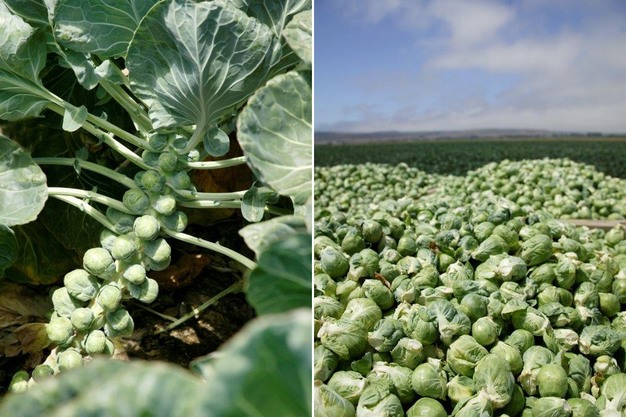Supply of Brussels sprouts is plentiful right now–more so than this time last year. "As an industry, we're oversupplied at this time," says Sherry Harper, commodity manager for Beachside Produce, adding that quality is good. "There are a lot of players in Brussels sprouts commodity business and we haven't really had any major weather disruptions in Mexico. We are starting to see some insect pressure though." In turn, that's anticipated to impact supply and tighten it up.

Up until the last decade, Brussels was generally a fall seasonal crop grown only in Watsonville and Castroville, California, where it's also grown for processing. "It's turned into a year-round commodity because, with different varieties now in Mexico, you can grow them from January to summer, often June or July depending on the weather," says Steve Adlesh, a partner with Beachside. Luis Angulo, the company's Brussels sprouts agronomist says production in California will begin in the middle of June with the Divino and Marte varieties and that will go until January.
Production on the West Coast will also include Washington crops and Canada also grows good volume in late summer.
Varietal work
With that year-round supply in mind, several Brussels sprouts varieties have been developed to combat grower issues from insects to mildew. "Brussels sprouts are in the ground a long time because they're a long crop to grow," says Adlesh. (Angulo notes that a California crop in June is planted in early December while Mexico plants in early November for early March production). Though Beachside has some mechanical harvesting equipment, Brussels is also a labor-intensive crop to harvest. "A lot of the time they have to be handpicked depending on what type of ground they're in and what kind of state they're in in terms of development. It's a complicated game and once you're committed to Brussels sprouts, you're committed."

In turn, consumption is increasing of Brussels and that's attracting more players into the Brussels sprouts deal. That said, this year's oversupply is making it challenging to move extra quantities, even with foodservice demand still being relatively strong. "Though right now demand overall is probably the same as last year–it's just the oversupply," says Harper.
Last year at this time, the market was strong between $36-$40. Right now, the market is between $15-$18 with some industry quotes as low as $12.55-$13.55.
Looking ahead, oversupply is expected for another three to four weeks. Then the market may shift once that supply lessens somewhat.
 For more information:
For more information:
Steve Adlesh
Beachside Produce LLC
Tel: +1-805-343-2099
[email protected]
www.beachsideproduce.com
